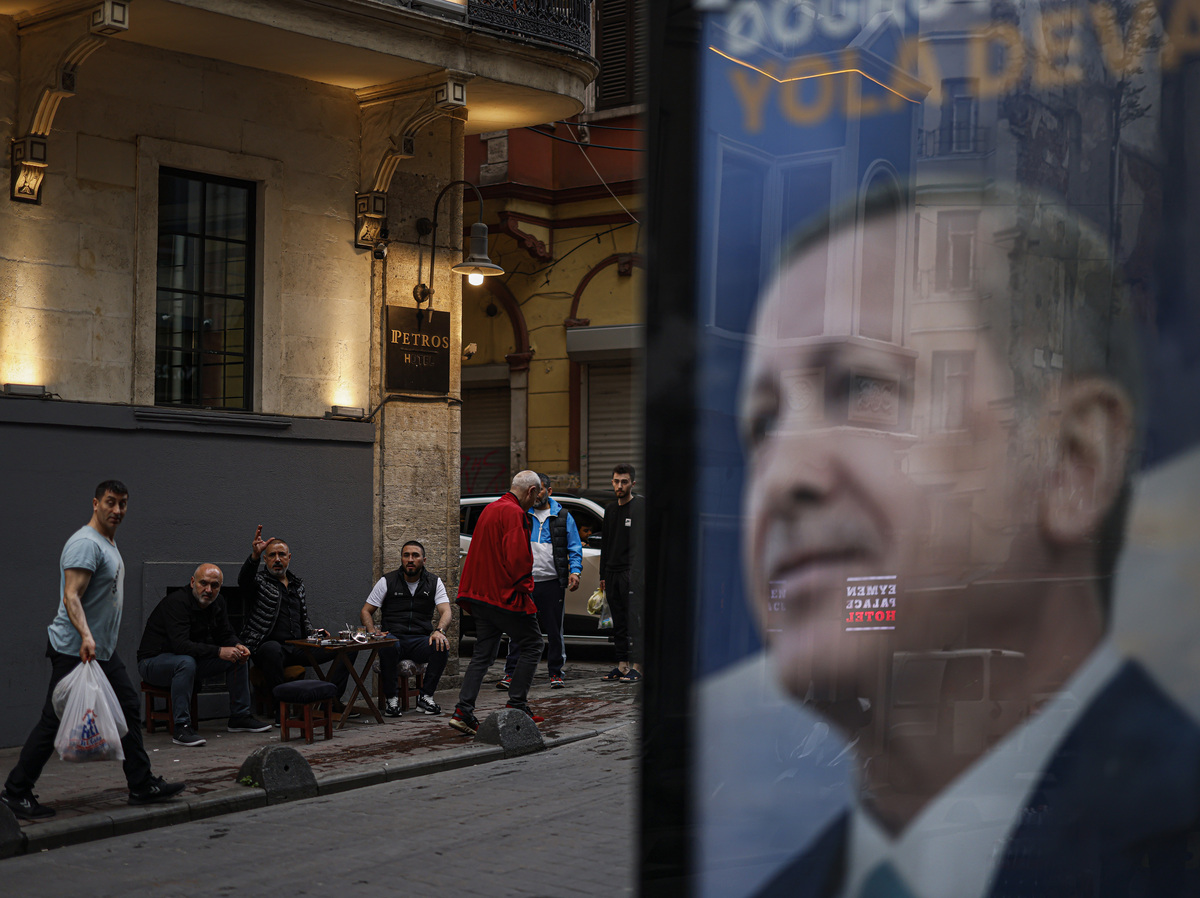
Men drink chai in the street the day after President Recep Tayyip Erdoğan was re-elected on Monday in Istanbul, Turkey. Jeff J Mitchell/Getty Images hide caption

Men drink chai in the street the day after President Recep Tayyip Erdoğan was re-elected on Monday in Istanbul, Turkey.
Jeff J Mitchell/Getty ImagesIn the months ahead of the election, Turkish President Recep Tayyip Erdogan faced criticism for his government's response to devastating earthquakes and for crushing inflation.
Yet, he still managed to come out ahead in this week's runoff election, extending his two-decade tenure leading Turkey by another five years.
His victory was a case study in how to use populism, intimidation and division to harness a democracy and stay in power.
NPR's Fatma Tanis breaks down his victory and what it means for democracy in Turkey and more broadly.
Email us at
This episode was produced by Connor Donevan. It was edited by Larry Kaplow and Adam Raney. Our executive producer is Sami Yenigun.

 Live Radio
Live Radio